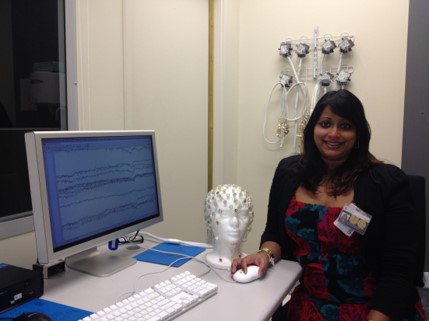The Changes We Do Not See:
Improving Diagnosis And Treatment of Anxiety in Parkinson’s Disease (IDATA-PD STUDY)
About:
The Australian IDATA-PD study aims to ImproveDiagnosis And Treatment of Anxiety in Parkinson’s Disease. IDATA-PD hopes to improve the conceptualisation of anxiety by profiling anxious symptomatology unique to PD e.g., anxiety relating to motor disability and motor fluctuations. By doing this, it can develop a new PD-specific anxiety inventory (PD-SAI) for measuring change in response to tailored psychotherapy approaches.
Our vision is to use cutting edge innovative treatment and state-of-the-art technology to provide accurate identification and effective evidence-based targeted therapies for a wider outreach of PD patients afflicted by mental dysfunction in this progressive neurodegenerative disease.
Successful Innovation:
The IDATA-PD study was the first to pilot Cognitive Behaviour Therapy (CBT) for anxiety in PD using a tailored, manualised, and dyadic protocol involving both PD patients and their caregivers. This innovative dyadic intervention delivered using conventional face-to-face modality demonstrated significant immediate and persistent reductions in anxiety in PD, and significantly lowered carer burden.
Why we need this program:
Parkinson’s disease (PD) is a progressive brain disease, more common in later life. In Australia, 1 in every 340 people lives with PD. Although PD is considered a movement disorder due to tremor, stiffness, slowness in movement, difficulties in walking and problems with balance, there are also a large number of non-motor related issues e.g., anxiety.
Anxiety is a highly prevalent condition experienced by 1 in every 2 people with PD. Anxiety significantly impairs activities of daily living and reduces quality of life in PD patients. Two thirds of anxious PD patients do not receive any treatment for their anxiety. Of those who do receive medication, 80% are unresponsive. Additionally, anxiety in PD presents with unique and complex symptomatology, which must be understood and addressed if a psychological intervention is to be effective.
Future Directions:
We hope to trial CBT for anxiety in PD using telehealth video conferencing new technologies. Telehealth video conferencing delivery method of CBT not only assist in getting much-needed interventions to PD patients in regional areas, but are useful in minimizing travel burden for PD patients where transport and mobility are an issue, as well as cost benefits.
Principal Investigator:
Dr Nadeeka Dissanayaka is a Research Fellow at UQ Centre for Clinical Research (UQCCR), Head of Neuro Mental Health (NMH) Group, and is an adjunct fellow at Department of Neurology, Royal Brisbane & Women’s Hospital and School of Psychology, UQ.
UQ and RBWH Collaborators:
Prof Nancy Pachana, Prof Gerard Byrne, A/Prof John O’Sullivan, Prof Peter Silburn, Dr Rodney Marsh, Dr Leander Mitchell, Prof Len Gray, Prof Trevor Russell, Prof A/Prof David Copland
Other: Prof George Mellick (Eskitis Institute, Griffith University), A/Prof Albert Leentjens (Netherlands), Dr Anja Moonan (Netherlands)

Principal Investigator

Collaborators



